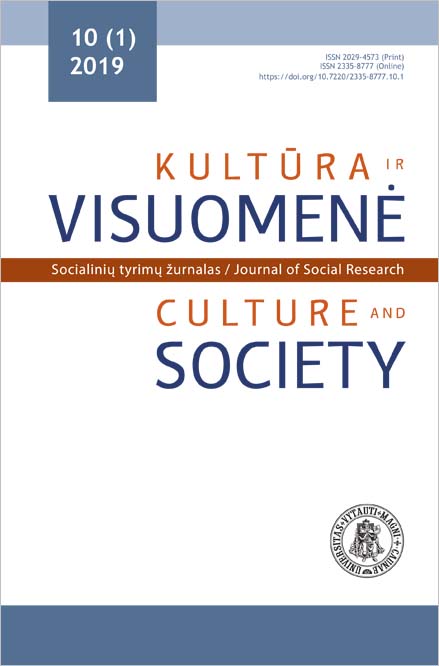Precarious Sexualities, Alternative Intimacies in Postsocialist Lithuania
Precarious Sexualities, Alternative Intimacies in Postsocialist Lithuania
Author(s): Artūras TereškinasSubject(s): Gender Studies, Cultural Anthropology / Ethnology, Social development, Family and social welfare, Sociology of Culture, Transformation Period (1990 - 2010), History of Communism, Social Norms / Social Control, Identity of Collectives
Published by: Vytauto Didžiojo Universitetas
Keywords: Sexuality; LGBTQ+ sexualities; Alternative intimacies; Postsocialist sexual ethnography;Lithuania;
Summary/Abstract: While sexual and gender self-determination became an inseparable part of the official state policies in the Western world, the opposite process of the retradicionalization of gender and sexual norms occurred in Lithuania during the last decade. It is comprised of an ineffective partnership law for either heterosexual or same-sex couples, the enactment of the discriminatory Law on the Protection of Minors against the Detrimental Effects of Public Information (the last version approved in 2011), the refusal to implement sex reassignment law and to ratify the Istanbul Convention and continuous attempts to prohibit abortions by the current Parliament of Lithuania. Neoconservative NGOs such as the “Institute of Free Society” and “Lithuanian Association of Human Rights” disseminating everyday sexism, homophobia and transphobia have also been popping up recently. The current Parliament discussions on sexual addictions and prohibitions of advertising of sexual commodities such as condoms or sex toys also point to intensifying attempts to regulate sexual market. In this context of state and institutional regulation of sexuality, this article focuses on alternative intimacies and sexual practices from a bottom-up perspective. In describing alternative intimacies, I use the term “precarious” to emphasize a necessary relation between sexual and gender norms and the historically shaped distribution of vulnerability across LGBTQ+ sexualities and bodies. By analyzing my own sociological novel Endless Summer: A Memoir of Love and Sex (2017) that contains a specific postsocialist sexual ethnography, I not only examine the ways in which Lithuania’s socio-economic and political institutions produce unequal conditions for different intimate behaviors but also detail how vulnerable communities create possibilities of love and sex amidst the toxic political waste of failed sexual revolution.
Journal: Kultūra ir visuomenė: socialinių tyrimų žurnalas
- Issue Year: 10/2019
- Issue No: 1
- Page Range: 11-28
- Page Count: 18
- Language: English

